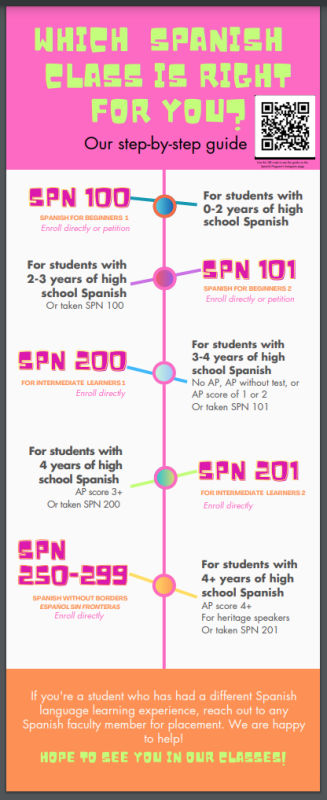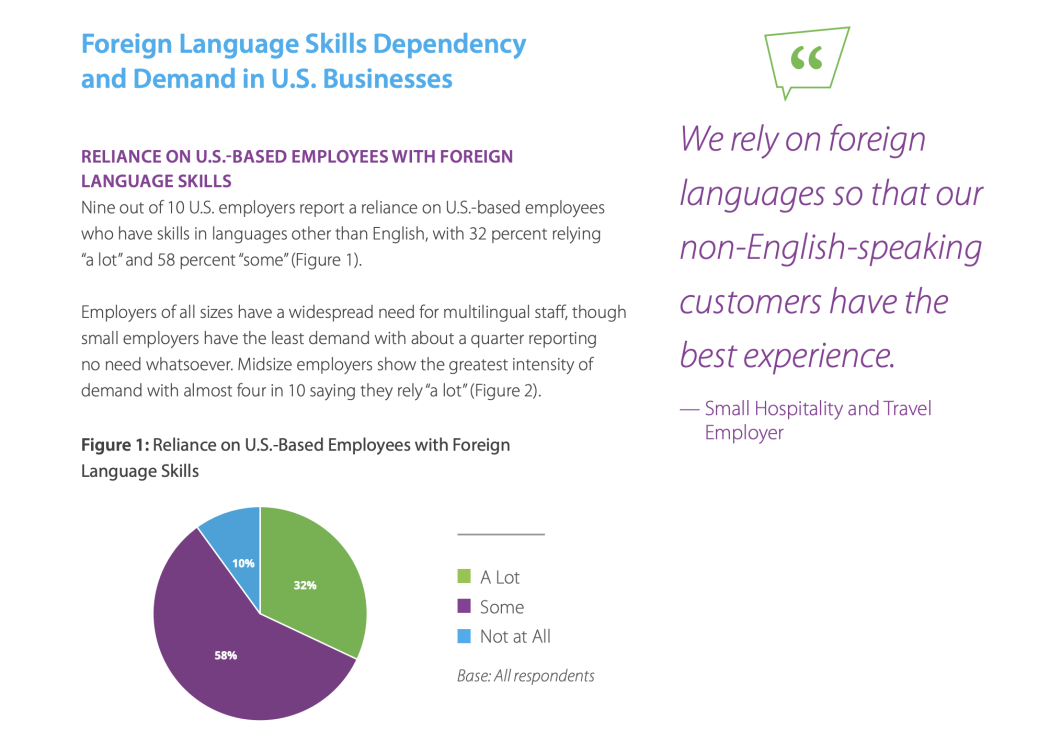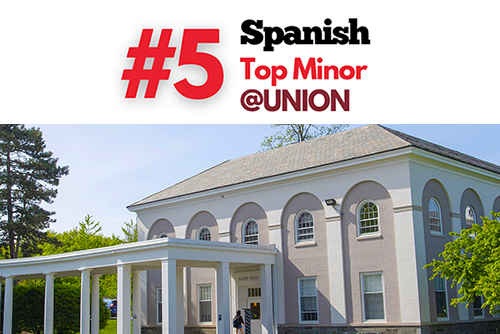The 250-299 sequence (Spanish without Borders / Español sin Fronteras) is an exciting new cross-disciplinary classes well suited for students with 4 or more years of Spanish language study, with a score of 5+ 4+ or above on the AP exam or SPN 201, and students who have studied in a Spanish-speaking country or for heritage speakers that can read and write in Spanish. - Recommended prior to taking this course, but is not required.
SPN-250 Sustainable Travel
In this class, students will engage with terms like ecotourism, voluntourism, community tourism, agrotourism, and indigenous tourism through concrete case studies from Spanish-speaking countries, such as Spain, Costa Rica, Bolivia, Mexico, Honduras, the Amazon and the Galápagos Islands. Students will learn about each country's geography and critically reflect on their role as travelers and language learners. This course is highly collaborative, student-centered, participatory, and project-based. Students will read newspaper articles, academic articles, watch documentaries, videos.
SPN-251 Power, Honor, Love Stories
Chronicle of a Death Foretold, by Gabriel García Márquez, is at the core of "Stories about Power, Honor, and Love." The stories from this novel will hone your creative, analytical, and critical skills as you delve into the lives of characters who met or struggled to meet society's expectations. You will study cultural practices from the past and compare them with current cultural traditions to assess how cultural systems of oppression and privilege constrain or encourage human relationships when we have to exercise power, behave honorably, or choose who to love. The readings, class discussions, writing assignments, and creative digital projects will continue to develop your Spanish language skills. Classes and assignments will be in Spanish.
SPN-252 Media/Society in Spanish World
This course is an intercultural reflection about the role of media in contemporary society throughout the Spanish-speaking world. It focuses on diverse UN-identified global issues as it explores how media impact on our opinions about the challenges shaping our societies, and how our awareness of those dynamics can empower us as agents of change. The course also seeks to raise awareness about the interconnection of media with cultural identity and politics that frame (and complicate) our understanding of global issues. Through readings, videos, discussions, digital projects, and writing assignments, the course fosters the further development of linguistic (writing, speaking, reading, understanding) and critical skills. All discussions and assignments are in Spanish.
SPN-253 Colliding Worlds
In this course students examine fictional encounters between people from different backgrounds in the Hispanic world. What happens when a maid and her wealthy employer exchange clothing and roles? When the drivers of a shiny Audi and a rusty clunker inspire road rage in one other? Or when a girl looks into the eyes of an outsider whom she's been complicit in bullying? We analyze stories, plays, and movies from Spanish-speaking countries, situating them in relevant historical and social contexts and examining in them the intersections of class, race, gender, culture, and national identity (JEID). Through readings, films, discussions, creative projects, and writing assignments, students continue developing listening, speaking, reading, and writing abilities in Spanish, as well as skills in critical analysis and intercultural communication (WOL). Prerequisite is any one of these: SPN 201; SPN 202; any course numbered SPN 250-299; AP Spanish score of 4+; or being a heritage speaker.
SPN-254 SPANISH FOR HERITAGE SPEAKERS
Did you grow up speaking Spanish at home but most of your academic experience has been in English? This class works to strengthen reading and writing skills in Spanish, with a focus on the types of grammar and spelling challenges faced by Heritage Speakers of the language. We will also learn about the cultural, ethnic, and linguistic diversity of the Spanish-speaking world, which, of course, includes the United States.
SPN-255 NONPROFITS AND STORYTELLING: SPANISH FOR SOCIAL IMPACT
You want to work at a nonprofit? Or learn about the power of effective storytelling for business and communication? This course advances your Spanish by expanding your familiarity with NGO's through case studies and first-hand accounts from successful leaders working in Spanish speaking communities. Each week will focus on a different aspect of storytelling, including learning how to effectively reach your audiences, telling stories with data, using images ethically, and leveraging social media platforms. You will advance your Spanish language skills through storytelling projects, translations, readings, videos and podcasts related to the work of social entrepreneurs. This course is highly participatory and student centered, with real life case studies, guest speakers, and course projects.
SPN-256 Rethinking Latin America CulTURE
This course allows students to delve into Latin American culture through music, dance, and food. In recent years, tourism has emerged as one of the most pivotal industries in the region. However, cultural productions transcend mere commodities marketed to tourists. Throughout this course, students will challenge their preconceptions about Latin America, often shaped by perspectives from the Global North. They will engage in written and academic discussions about how these cultural expressions influence national identities, colonial legacies, and issues related to gender and race across Latin America.
SPN-257 Illness/Med & Hispanic Culture
This course explores illness and medicine in the Hispanic world. Students acquire cultural knowledge and vocabulary; carry out research in Spanish; converse with Spanish speakers on campus; learn from guest speakers who use Spanish in health care contexts; and engage with film, literature, art, and media about illness and medicine. Students deepen their understanding of the social determinants of health by examining the intersections of illness with class, race, ethnicity, gender, culture, ability, and age. Students also develop listening, speaking, reading, and writing skills in Spanish.


